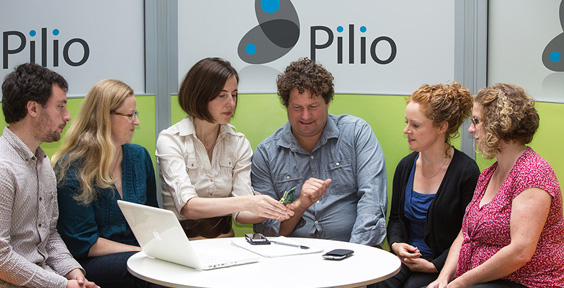Pilio tell us about their aspirations for Data Pitch and beyond.
Demand for energy in the EU market is set to increase by a third by 2040, and improving energy efficiency is crucial in order to meet this need.
UK-based Pilio are building an energy management platform to help businesses save money and reduce CO2 emissions in commercial buildings. We spoke to Co-Founder and Chief Scientific Officer Dr Russell Layberry about their plans for Data Pitch.
What do you hope to achieve on the Data Pitch accelerator?
We hope to develop and test our new product for identifying energy-saving technologies and methods in non-domestic buildings. We combine data from building specifications and installed energy equipment, and factoring in future scenarios for energy prices, calculate a retrofit programme to increase efficiency and reduce costs for businesses.
What shared data will you work with and how will you use it?
While with Data Pitch, we’ll be working on the Energy Challenge (increasing efficient energy creation and use). We work with building and energy data from our clients, which range from small businesses to large multisite portfolios. They have different access to a range of data, including half-hourly smart meter data. We combine these datasets to provide economically-costed retrofit programmes.
The economic viability of an equipment retrofit programme is fundamentally a function of the current efficiency, the efficiency of the replacement and how much the asset is expected to be worked now and in the future. These details are brought together and analysed in order to produce the ‘best’ retrofit schedule, which factors in what are the most economic, the most energy or carbon-saving and the most future-proof options. Future energy costs are unknown but are still of fundamental importance in designing retrofit programmes, so we take a statistical and risk management approach.
Why do you think it is important for startups to work with large scale data providers?
As the economy moves in a more data-driven direction, data becomes more accessible and more useful. Current methods of estimates based on experience have become outdated and expensive in comparison to the development of algorithms and automation. As the amount of data increases exponentially, it is crucial for startups to analyse the potential value from the data in order to take full advantage of the opportunities.
What’s the best thing about working with data?
How it can influence a business’s strategy. As data becomes a commodity, we are seeing organisations that did not previously make use of their data move towards a more data-driven and fact-based approach to their decision making.
If you could change one thing about the data ecosystem what would it be?
We would put a bigger emphasis on building data sharing ecosystems that are regulated with governments and in partnership with companies to allow for accelerated innovation, as well as a balance of business interests and ethics.

